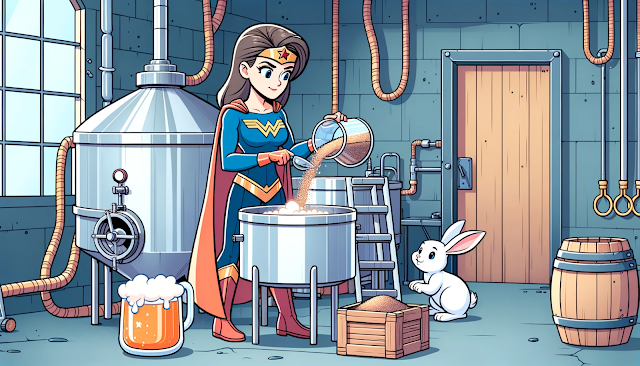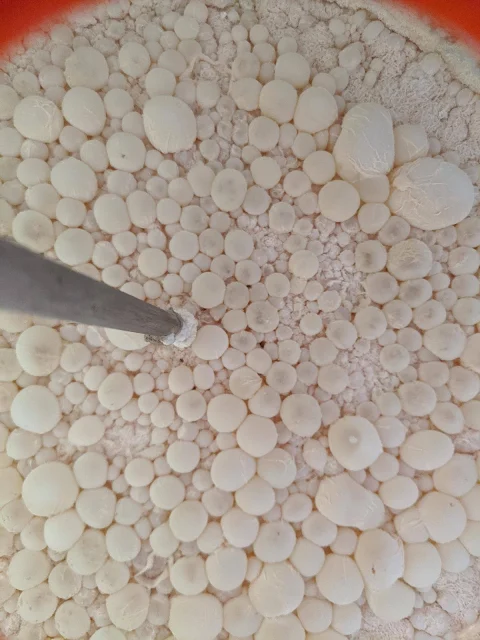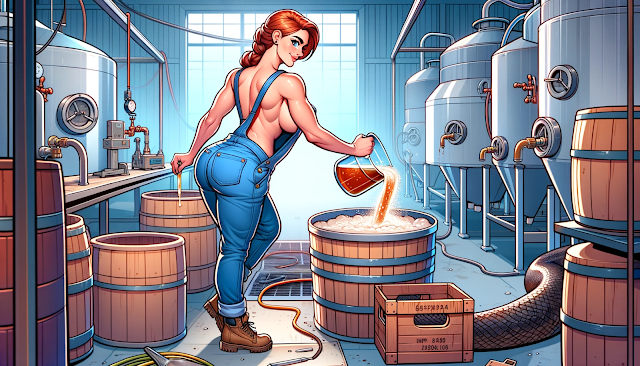Yeast is a remarkable microorganism, the microscopic workhorse that transforms sugary wort into glorious beer.
For centuries, brewers relied on instinct and tradition, unknowingly providing for their yeast.
It wasn't until the pioneering work of scientists like Louis Pasteur that we began to understand fermentation not as a mystical event, but as a biological process driven by a living organism with specific needs.
While factors like temperature and pH are often discussed, the specific nutritional needs of yeast can be overlooked.
This guide will delve into the vital science of yeast nutrition, transforming your understanding from simply pitching yeast to actively managing its health for a better, cleaner, and more consistent fermentation every time.
What Yeast Craves (Beyond Sugar)
An all-malt wort is a fantastic food source, but it isn't always perfect. For yeast to not just survive but thrive, it needs more than just sugar.
It requires a balanced diet of micronutrients to build healthy cell walls, reproduce efficiently, and cleanly metabolize sugar into alcohol without producing unwanted off-flavors.
The Brewer's Micronutrient Checklist:
- Nitrogen (FAN): The most critical nutrient. Yeast needs Free Amino Nitrogen (FAN) to synthesize proteins and build new cells. A standard all-malt wort usually has plenty, but worts with high amounts of sugar adjuncts do not.
- Minerals (Especially Zinc): Zinc is a vital cofactor for key enzymes, including alcohol dehydrogenase, which performs the final step of alcohol production. A lack of zinc can lead to sluggish or stalled fermentations. Magnesium is also crucial for cellular metabolism.
- Vitamins: B-complex vitamins like biotin and pantothenic acid are essential for healthy cell growth and metabolism.
- Sterols and Unsaturated Fatty Acids: These are the building blocks of the yeast cell membrane. A strong, pliable membrane is crucial for stress tolerance (especially to alcohol) and proper cell function.
When yeast is stressed due to a lack of these key nutrients, it produces more undesirable compounds like fusel alcohols (hot, solvent-like flavors) and acetaldehyde (a cidery, green-apple flavor), leading to a flawed beer.
Identifying a Nutrient-Deficient Wort
For many standard-gravity, all-malt beers, adding extra nutrients is not necessary. The malt provides a rich diet.
However, in certain high-stress situations, nutrients become an essential tool for ensuring a clean and complete fermentation.
Use Nutrients When:
- Making High-Gravity Beers: A wort with a starting gravity above 1.060 is a high-stress environment. The high sugar concentration (osmotic pressure) and eventual high alcohol level are tough on yeast. Nutrients help build a larger, healthier yeast population that can handle the stress.
- Using High Proportions of Adjuncts: If your recipe includes a large amount (over 20%) of non-malt sugar sources like corn sugar, table sugar, or honey, you are diluting the wort's nutrient content. These simple sugars provide no FAN or minerals, effectively starving your yeast.
- Making Yeast Starters: Adding a small amount of nutrient to your yeast starter gives your yeast a perfect environment to build up its population and store the vital compounds it needs for a healthy fermentation in the main batch.
- Brewing Seltzers, Meads, or Ciders: These fermentations are almost entirely devoid of the nutrients found in malt. For these beverages, yeast nutrient is not just beneficial; it is essential for a successful fermentation.
Choosing and Using Your Nutrients
There are several types of yeast nutrients available, each with a specific purpose.
Nutrient Types:
- Simple Nutrients (DAP): Products like di-ammonium phosphate are simple nitrogen supplements. They are effective at providing basic fuel for yeast reproduction.
- Complex Nutrients: Blends like Fermax or Fermaid K are a brewer's best friend. They contain a balanced mix of nitrogen, amino acids, vitamins, and minerals, providing a complete diet for your yeast.
- Specialized Nutrients (e.g., Servomyces): Produced by White Labs, Servomyces is a unique product made from yeast that has been enriched with zinc. It provides this critical mineral in a highly bioavailable form, ensuring it gets directly to the yeast cells without any risk of toxicity.
Application Protocol: Timing is Everything
For best results, add your yeast nutrient during the boil.
The Golden Rule: Add 1 teaspoon of a complex yeast nutrient per 5 gallons of wort during the last 10-15 minutes of the boil. This ensures the nutrient is fully dissolved and sanitized before fermentation begins.
For a product like Servomyces, one capsule added at 10 minutes is all that's needed. If you are brewing a kit beer with no boil, you can add the nutrient directly to the fermenter and stir vigorously to dissolve it before pitching your yeast.
From Brewer to Yeast Rancher
Yeast nutrition might seem like a small detail, but its impact on your final beer is immense.
By moving beyond just providing sugar and starting to manage the health of your yeast culture, you elevate your brewing from a simple process to a true craft.
You become a yeast rancher, cultivating a healthy herd to do its best work.
Whether you're pushing the limits with a high-gravity monster or ensuring a clean ferment in a simple pale ale, understanding the nutritional needs of yeast is a powerful tool in your quest for the perfect pint.















